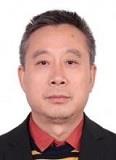
Daowen Qiu

Daowen Qiu
The main research outcomes of Prof. Qiu are in the following areas. (1) Quantum models of computation. (2) Quantum query algorithms. (3) Quantum cryptograpy and quantum communication. (4) Quantum states distinguishablility and quantum states cloning. (5) Theory of computation based on quantum and lattice-valued logic. (5) The applications of fuzzy and probabilistic automata to discrete event systems, focusing on diagnosability and supervisory control.
With his research team, he has published over 130 papers in peer-review journals, and over 25 conferences papers. More specifically, (1) They has systematically studied a number of different QFA (quantum finite automata) models, and solved the decidability of equivalence and minimization of these QFA models (D. Qiu, L. Li, X. Zou, P. Mateus, J. Gruska, Acta Informatica, 2011, 48 (5-6): 271-290; P. Mateus, D. Qiu, L. Li, Information and Computation, 2012, 218: 36-53;L. Li, D. Qiu, Theoretical Computer Science, 2008, 403(1): 42-51). Therefore, they answered the problems of how to decide the equivalence of quantum sequential machines proposed by Professor Gudder, and how to decide the equivalence of MM-1QFA proposed by Professor Gruska. In particular, they answered the problems of how to minimize QFAs proposed by Moore and Crutchfield. They proposed a model of quantum-classical finite automata, named as one-way quantum finite automata together with classical states (D. Qiu, L. Li, P. Mateus, A. Sernadas, Journal of Computer and System Sciences, 2015, 81(2): 359-375). Also, they have studied some properties of 2QFAC, quantum pushdown automata, and quantum Turing machines. (2) They have proved the characterization of all Boolean functions that can be solved by quantum 1-query algorithm. (3) They have studied quantum states discrimination and quantum cloning machines, and has derived some bounds on unambiguous discrimination and minimum-error discrimination (some bounds are optimal to a certain extent), and some relationships between unambiguous discrimination and minimum-error discrimination have been clarified. Also, they have established a generic machine model of probabilistic cloning and deleting, and proposed a universal probabilistic deleting machine. (4) They have studied quantum teleportation and superdence coding based on different entangled states (W-states). (5) They have studied semi-quantum cryptography and proved that a semi-quantum key distribution protocol is unconditional security. (6) They have discovered some essential connections between quantum logic and models of computation, and established residuated lattice-valued automata theory (D. Qiu, Information and Computation, 2004, 190(2): 179-195). (6) They have established a fundamental framework of the supervisory control for fuzzy discrete event systems (FDES) and developed the supervisory control of probabilistic discrete event systems (PDES), using fuzzy automta and probabilistic automata, respectively.
Title: Fuzzy discrete event system: Supervisory control and fault diagnoses
